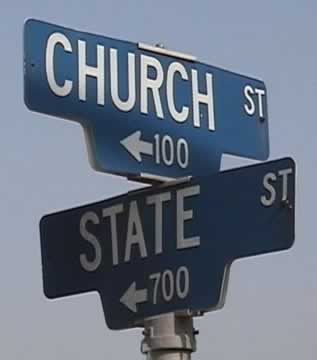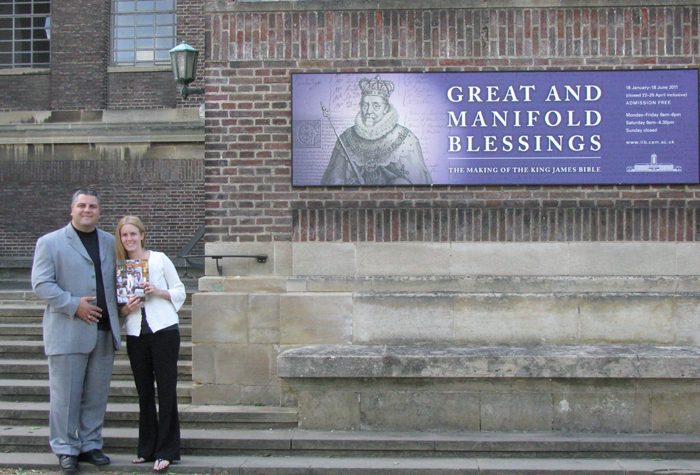Bulgarian law to ban all foreign preachers
 The Patriotic Front, a newly established political formation in Bulgaria, filed changes to the 2002 Religious Dominations Act last Thursday. The new measure bans all foreign citizens from preaching on the territory of Bulgaria, as well as preaching in any other language than Bulgarian.
The Patriotic Front, a newly established political formation in Bulgaria, filed changes to the 2002 Religious Dominations Act last Thursday. The new measure bans all foreign citizens from preaching on the territory of Bulgaria, as well as preaching in any other language than Bulgarian.
The draft amendments also foresee banning foreign organizations, companies and citizens from providing funding or donating to Bulgarian religious denominations. All the religious denominations in Bulgaria will be obliged to perform their sermons, rituals and statements only in Bulgaria. One year’s time will be given to translate religious books into Bulgarian.
Financially, the draft laws would ban not only foreign physical and legal entities from funding Bulgarian religious institutions, but also companies with foreign ownership that are legally registered in Bulgaria. Using state funding for “illegal activities” by religious denominations will be sanctioned with prison terms of three to six years. With these sanctions in mind, the new legal measure embodies the following rationale:
- Churches and ministers must declare all foreign currency money flow and foreign bank accounts
- Participation of foreign persons in the administration of any denomination is strictly forbidden
- Foreign parsons shall not be allowed to speak at religious meetings in any way shape or form especially religious sermons
- Anonymous donations and donorship to religious organization is not permitted
- Bulgarian flag shall be present in every temple of worship
- The new measure will block all foreign interference in the faith confessions and denominations in Bulgaria
Bulgaria to ban all foreign preachers
 The Patriotic Front, a newly established political formation in Bulgaria, filed changes to the 2002 Religious Dominations Act last Thursday. The new measure bans all foreign citizens from preaching on the territory of Bulgaria, as well as preaching in any other language than Bulgarian.
The Patriotic Front, a newly established political formation in Bulgaria, filed changes to the 2002 Religious Dominations Act last Thursday. The new measure bans all foreign citizens from preaching on the territory of Bulgaria, as well as preaching in any other language than Bulgarian.
The draft amendments also foresee banning foreign organizations, companies and citizens from providing funding or donating to Bulgarian religious denominations. All the religious denominations in Bulgaria will be obliged to perform their sermons, rituals and statements only in Bulgaria. One year’s time will be given to translate religious books into Bulgarian.
Financially, the draft laws would ban not only foreign physical and legal entities from funding Bulgarian religious institutions, but also companies with foreign ownership that are legally registered in Bulgaria. Using state funding for “illegal activities” by religious denominations will be sanctioned with prison terms of three to six years. With these sanctions in mind, the new legal measure embodies the following rationale:
- Churches and ministers must declare all foreign currency money flow and foreign bank accounts
- Participation of foreign persons in the administration of any denomination is strictly forbidden
- Foreign parsons shall not be allowed to speak at religious meetings in any way shape or form especially religious sermons
- Anonymous donations and donorship to religious organization is not permitted
- Bulgarian flag shall be present in every temple of worship
- The new measure will block all foreign interference in the faith confessions and denominations in Bulgaria
Bulgaria in the Archives of the British and Foreign Bible Society in Cambridge
For the past 15 years, which we have dedicated to the study and translation of the Bulgarian Bible, it has been a personal dream of ours to visit and work with the Cambridge Library and more specifically with the historical documents which are related to the translation and publication of the Bulgarian Bible through the 18-19 centuries.
The closest we had come to examining the archives was back in 2005-2007 while searching for the lost copy of Theodocy Bistritzky’s 1820 translation of the Gospel of Mathew. We then found the only two copies left of that translation, one located in St. Petersburg (with a reproduction at the U.S. Library of Congress) and the other at the Cambridge Library.
Therefore, it was a great pleasure to receive an invitation to visit the Cambridge Library in connection with the 400-year anniversary of the King James Bible (1611) and use the opportunity to examine the available documents related to Bulgaria. The main difficulty with this task comes from the fact that during the 19th century Bulgaria was under Ottoman occupancy and documents related to the Bulgarian Bible are cataloged under various locations: European Turkey, Near East Mission, New Bulgarian Kingdom, Western Turkey, Bulgarian Kingdom or the Balkans. For this reason, many documents are yet not cataloged and remain the library’s stacks, which makes their discovery both difficult and exciting. Successfully completing our initial survey of the archives, we were able to take over 1,000 pages in pictures with the library’s permission. This first look at archives that have remain hidden for more than a century reveled three groups of documents containing the following items:
Catalog series BSA/E3/1/4 contains some 30 volumes with whole or partial copies of letters and documents. For the lack of copy machines back then, the items in the archive were written by hand. Eighteen of these volumes listed bellow, contain information about Bulgaria.
BSA/E3/1/3 (p. 23, 54, 69, 70, 107, 185, 190, 211-12, 229) – letters from 1859 to and from Rev. Dr. Chauffer, Benjamin Barker, Dr. Van Dayk, Dr. Riggs, etc., predominantly referring to the revision of the Bulgarian New Testament.
BSA/E3/1/4/2 (p. 60, 75, 96-99, 107-109, 160-166, 272, 305) – letters from 1862-63 of Rev. Баркър, Thomson, etc., about the translation of the Pentateuch including an important index of the corrections in revision of the Bulgarian New Testament (p. 162).
BSA/E3/1/4/3 (p. 48, 64, 102, 111, 114, 149, 160-1, 172, 185, 222, 227) – letters from 1861-62, 1865 на Benjamin Barker, Dr. Riggs, J.W. Muller, Thomson and others. This correspondence set discusses the importance of changing the Bulgarian translation to the Eastern (Tarnovo) dialect.
BSA/E3/1/4/4 (p. 3) – letter by Dr. Thomson about Dr. Riggs work on the Bulgarian Bible.
BSA/E3/1/4/5 (p. 302, 311) – letters from 1867 about Dr. Long’s work on the Bulgarian Bible.
BSA/E3/1/4/6 (p. 150) – letter from Dr. Riggs to Dr. Thomson from October 3-29 1868, about the measurements in the Bulgarian translation.
BSA/E3/1/4/7 (p. 127, 136, 156) – letters from 1870.
BSA/E3/1/4/8 (p. 21, 24-25, 78, 102, 124-25, 129, 238) – letters from 1870-71 by Riggs, Thomson and others. Contains a fully revised table of the measurements in the Bulgarian Bible translation.
BSA/E3/1/4/9 (p. 275-76) – letter by Dr. Thomson about Dr. Riggs’s work on the translation of the Bulgarian Bible.
BSA/E3/1/4/10 (p. 150) – letter from 1874.
BSA/E3/1/4/11 (p. 66, 129, 199, 213, 237) – letters from 1874.
BSA/E3/1/4/12 (p. 40, 185, 248, 253, 260-61, 265) – 1876 letters to and from Dr. Thomson with a request to receive 200-300 copies of the Bulgarian edition of the Psalms. The collection ends with a parallel of several translations in a printed edition for the revising committee. (p. 265ff).
BSA/E3/1/4/13 (p. 13, 63, 73, 90, 304-05) – 1877-78 letters to Dr. Thomson.
BSA/E3/1/4/14 (p. 113) – letter to Dr. Thomson.
BSA/E3/1/4/16 (p. 181, 279) – letters by Dr. Thomson.
BSA/E3/1/4/20 (p. 232-35) – letter to Dr. Thomson from August 29 recommending a 3,000 copy publication of the Four Gospels with the Book of Acts in one volume in parallel with the Slavic text.
BSA/E3/1/4/25 (p. 196, 333) – letters from 1887-90.
BSA/E3/1/4/30 (p. 16-17, 51, 350) – letters from 1892.
Two additional folders marked with “Bulgarian” and catalog series BSA/83/3/67/1-2 has the complete BFBS correspondence from the first half of the 20th century. It refeers predominantly to the new revision of the text prepared for the 1924 Royal Publishing House edition of the Bulgarian Bible. Various other items are included as well, many of which related to the Evangelical School in Samokov (near the capital Sofia) and its full operational publishing house, along with many more documents important for the Bulgarian protestant history. A third and final item of interest is catalog series BSA/E3/2/19-20, BSA/E3/2/23 and BSA/E3/2/24-26.








